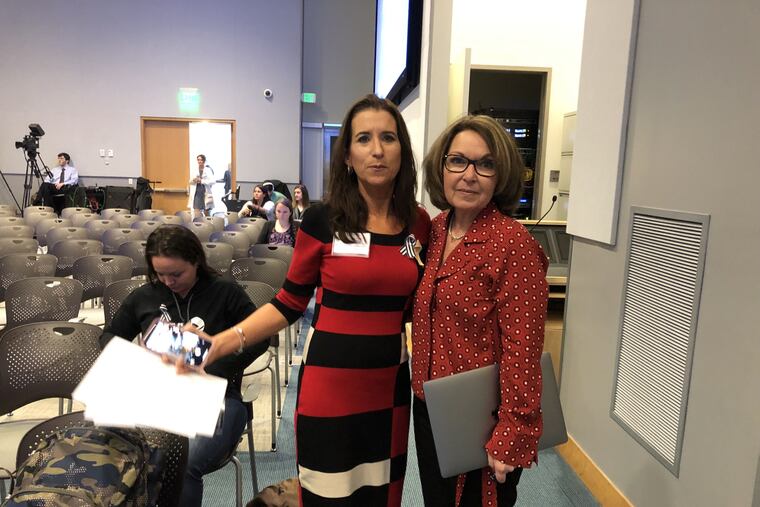Breast-implant illnesses spark stronger FDA safety proposals; advocates push for more
The recommendations include a “black box” warning — the FDA’s most serious alert — that would caution about the lymphoma and that implants may be linked to chronic symptoms such as fatigue and joint pain.

Under pressure from women suffering from breast implant-related cancer and other illnesses, the U.S. Food and Drug Administration on Wednesday proposed that manufacturers add tougher warnings and a patient decision checklist.
“We’ve heard loud and clear from the public advisory panel meeting we held earlier this year ... that there is a distinct opportunity to do more to protect women who are considering breast implants,” FDA officials said in a statement.
Coincidentally, the FDA proposal came on the heels of a statement from a Facebook-based advocacy group devoted to women with the uncommon cancer, a lymphoma that researchers agree is caused by textured implants.
“We have 34 women dead, and sadly there will be more deaths as accurate diagnostic criteria is still lagging,” Breast Implant Lymphoma Advocates emailed to reporters on Tuesday with the statement, also posted on its Facebook page.
In an interview, Terri McGregor and Jamee Cook, co-founders of the group, commended the FDA for taking steps they have been urging for three years. They also called on regulators and manufacturers to withdraw all textured implants.
“From a patient perspective, I’m having chemotherapy, and I’m suffering,” said McGregor, 54, of Ontario, who is being treated for a secondary cancer that is a complication of her previous treatment for metastatic implant lymphoma. “We are asking any manufacturer with a lymphoma patient to remove that product from the market. We’re asking manufacturers to do the right thing. Do we have to wait until they have a certain number of sick women?”
More than 700 women worldwide have been diagnosed with the immune system cancer, which was first recognized in 1997 and is now called breast implant-associated anaplastic large-cell lymphoma. If diagnosed early, it can be cured by removing the implant and surrounding scar capsule, but the Facebook group is full of stories of struggles to get the correct diagnosis and appropriate surgery.
Because most lymphoma cases have been linked to textured implants made by Allergan, those products were banned by Canada and other countries. In July, the FDA — in a reversal — asked Allergan to withdraw its textured implants, which prompted the company to announce a global recall.
However, textured implants marketed in the United States by Sientra and Mentor, as well as textured products not sold in the U.S., also have caused the lymphoma.
» READ MORE: In a breast-obsessed world, more women "go flat" after mastectomy
The FDA’s proposal is published in the Federal Register and invites public feedback. Such “draft guidance for industry” usually takes years to become final.
Among the changes the FDA draft recommends:
A “black box” warning — the FDA’s most serious alert — that would caution about the lymphoma and that implants may be linked to chronic symptoms such as fatigue and joint pain.
A concise patient checklist that can guide the discussion with the surgeon of implant risks and complications. The list would be added to the lengthy informational brochure given to women considering implants.
Listing implant ingredient information in the product brochure.
Adding each implant’s unique identifying number to the device card that is supposed to be given to patients.
» READ MORE: Preterm birth remains a mystery. A drug many hoped would improve outcomes is now in doubt
“Although the FDA doesn’t move as fast as we want," said Cook, 41, of Dallas, "these are positive moves, and it’s encouraging to our patient community that some action is happening.”
The advocates’ statement calls for more efforts to track, research — and stop minimizing — the lymphoma. The four-page document is signed by six leaders and includes links to the latest research presented this month in Rome at the first international conference on the disease.
“We will continue to confront the misleading and dangerous narrative that [the lymphoma] is exceedingly rare, easily diagnosed at early stages, and easily curable,” says the statement. “This ignores the complexity and seriousness of our man-made cancer.”